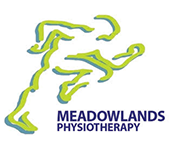Preventing Repetitive Strain Injuries with Physiotherapy
It’s likely that if you work at a job where you perform the same movements every day or you participate in a sport or other regular activity that uses the same muscles and joints, you have felt some sort of discomfort. Sometimes the irritation or pain can become worse over time and does not go away with rest and relaxation. This is referred to as repetitive motion injury or repetitive motion disorder, but most commonly it’s known as repetitive strain injury.
A repetitive strain injury (RSI) is identified by symptoms that can range from stiffness, tenderness or throbbing in the affected area, to numbness, tingling or loss of sensation and strength, or acute pain that can be mild or severe. This can be caused by a number of different incidents such as the overuse of certain muscles, poor posture (or holding the same posture for a long period of time), vibrating equipment, a prolonged high-intensity workout, excessive manual labour, heavy lifting, or even exhaustion and psychological stress.
Home remedies for RSI may include the use of hot or cold packs, elastic supports or splints, or pain medications. Surgery is sometimes needed if other options fail to correct the issue. Before considering surgery as a last resort, be sure to discuss with your doctor the possibility of using physiotherapy to help treat muscles, joints and nerves.
How Physiotherapy Can Help Repeated Strain Injuries
Physiotherapy is a helpful short or long-term solution for reducing the symptoms of RSI by strengthening muscles and joints, retraining posture, improving range of motion and preventing further injury. A trained physiotherapist will look at which areas of the body are affected and develop a personalized plan to address the severity of discomfort.
This includes targeted exercises that will:
- Alleviate areas where nerves are confined
- Improve flexibility and posture
- Boost blood flow
- Minimize sensitivity
- Build better muscle endurance
Your physiotherapist may also recommend that you try complementary therapies such as massage, yoga or acupuncture to assist with reducing symptoms and relaxing the muscles.
Preventing Further Repetitive Strain Injury
As part of your therapy, you will learn proper techniques to help reduce the chances that you may experience further injury or other symptoms related to RSI.
These techniques may include:
- Warm-up exercises for muscles and joints
- Maintaining proper posture while working or performing the activity that caused your RSI
- Executing proper lifting and carrying techniques
- Stretches to perform at designated intervals throughout the day, especially through long periods of sitting
With the right treatment and techniques, prevention is possible. In some cases, physiotherapy may not be able to address the severity of every issue, so it’s important to consult with your doctor to discuss available treatment options and ensure that the right course of action will help you recover. For most people, physiotherapy is a powerful solution to support their RSI and learning the proper techniques helps to maintain a healthy, active lifestyle.
If you’re considering physiotherapy for your repetitive strain injury, contact us today to learn more about how we can help!

